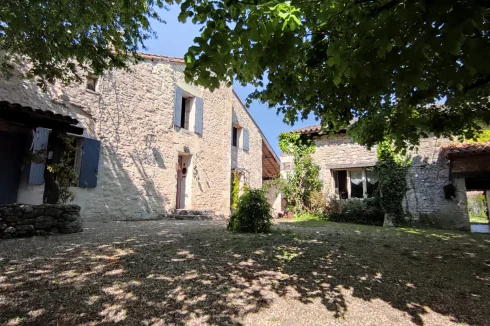Tougher Controls on Landlords in France
Tuesday 06 May 2014
A new law has introduced a range of new controls on landlords that apply, in one measure or another, to both unfurnished and furnished lettings.
Rarely has such a comprehensive and contentious piece of legislation on housing and planning been presented to the French Parliament as was the case last year with the projet loi ALUR (Accès au Logement et un Urbanisme Rénové) .
As originally conceived, the draft legislation sought to lay seige to the current, already very prescribed, legal framework, including the imposition of strong rental controls, a universal rental guarantee, and significant changes to the current planning regime.
However, in its final form the new legal framework falls well short of the goals set for it by its promoter, the Minister of Housing, Cécile Duflot (ergo, loi Duflot). In particular, the rental guarantee has been emptied of a great deal of its substance.
Certain other measures that were to be defined by subordinate legislation have yet to come into force, and just how much of the new law will ever see the light of day remains uncertain. The Minister behind the legislation, a member of the minority Ecology Party (EELV) is no longer a member of the government, which also now has a new Prime Minister.
We shall be providing readers with further more detailed information on this law in due course, and we shall also be updating our Guide to Letting Property in France.
We commence this month with a summary of the changes as they affect relations between landlords and tenants.
Generally speaking, the changes impose a substantial degree of prescription, and tougher penalties against landlords who break the rules.
It is likely to mean that the use of a good estate agent or huissier (official bailiff) will become de rigueur for those readers who let property on an annual basis (as opposed to holiday lettings).
It will also mean that the vetting process on prospective tenants becomes even more crucial than was the case in the past.
i. Rent Controls
Rental controls are to be imposed on those lettings in areas of housing shortage, at this stage defined as being 28 towns and cities of France. Introduction of this new measure is subject to the publication of regulations. The early indications are that these controls are unlikely to be severe but they will apply to both unfurnished and furnished lettings, provided the property is the principal residence of the tenant.
ii. Rental Guarantee
An optional publically backed rental guarantee (garantie universelle des loyers - GUL) for landlords, to reduce the risk of arrears of rent, but its introduction is again subject to the publication of regulations. Again, the measure will apply to both unfurnished and furnished lettings as above.
iii. Furnished Lettings
a. Tenants of furnished lettings are increasingly subject to the same legal provisions as those tenants of unfurnished lettings, provided the property is their principal residence, save for length of term, rental deposit and termination notice period.
b. The maximum amount of the rental deposit is two months' rent, where previously there was no cap. The rule does not affect holiday lettings.
c. The definition of a 'furnished letting' will be more precisely defined by the publication of a regulation that specifies the minimum level of furniture required.
d. Where property is principal residence of the tenant a compulsory inventory of the property must be taken.
e. The use of furnished properties for short term lettings - meublés touristiques - in areas of particular housing shortage will be subject to prior authorisation by the local council. This provision concerns Paris (where the rule already applies) and other cities and large towns. It only applies where the property is not also the main home of the owner.
iv. Tenancy Agreements
a. A list of documents that can be demanded from a tenant will be specified, reversing the previous principle of excluding certain documents.
b. New controls on the charges that can be imposed on a prospective tenant for setting up a tenancy.
c. Creation of a standard form of contract for letting, which specifies certain matters that must be contained in all letting contracts. This includes the rental paid by the previous tenant, and the works carried out since the previous tenancy.
d. A prospective tenant must be informed or risks of ground pollution where the property is located in a zoned area, a secteur d’information sur les sols.
e. A notice of explanation of the rights and obligations of both landlord and tenant must be annexed to the tenancy agreement.
f. Specifies the procedure for undertaking a condition survey (l’état des lieux) on commencement and termination of the tenancy.
g. To the list of statutory surveys that must be undertaken is added to the survey reports on electricity and asbestos.
h. Tenant rights concerning landlord works on the property are specified in greater detail.
i. Where the tenant fails to take out tenant insurance the landlord is entitled to do so on their behalf and recover the cost of doing so from the tenant.
j. Stricter regulation of sub-letting of property, notably in relation to information requirements to the sub-tenant.
v. Termination of Tenancy
a. The modalities of termination of the tenancy by the landlord are subject to stricter requirements.
b. The obligation for the landlord to provide alternative accommodation for elderly tenants has been increased, and the exemption provision for landlords has been toughened.
c. Increased rights to the tenant to give only one month's notice, rather than two.
d. The modalities of determining dilapidations at the end of the tenancy will be prescribed.
e. The rental/damage deposit must be returned to the tenant within one month of termination of the tenancy, not two as is currently the case.
f. The modalities for the process of commencing legal action against a tenant have been tightened, and the period when evictions cannot take place extended.
g. The rights of those in a civil partnership are aligned with married couples.
vi. Co-ownership Properties
There are a range of new measures that prescribe in more detail the modalities of the tenancies and controls on the managing agents.
Next Article: Guide to Unemployment Benefits
Thank you for showing an interest in our News section.
Our News section is no longer being published although our catalogue of articles remains in place.
If you found our News useful, please have a look at France Insider, our subscription based News service with in-depth analysis, or our authoritative Guides to France.
If you require advice and assistance with the purchase of French property and moving to France, then take a look at the France Insider Property Clinic.





